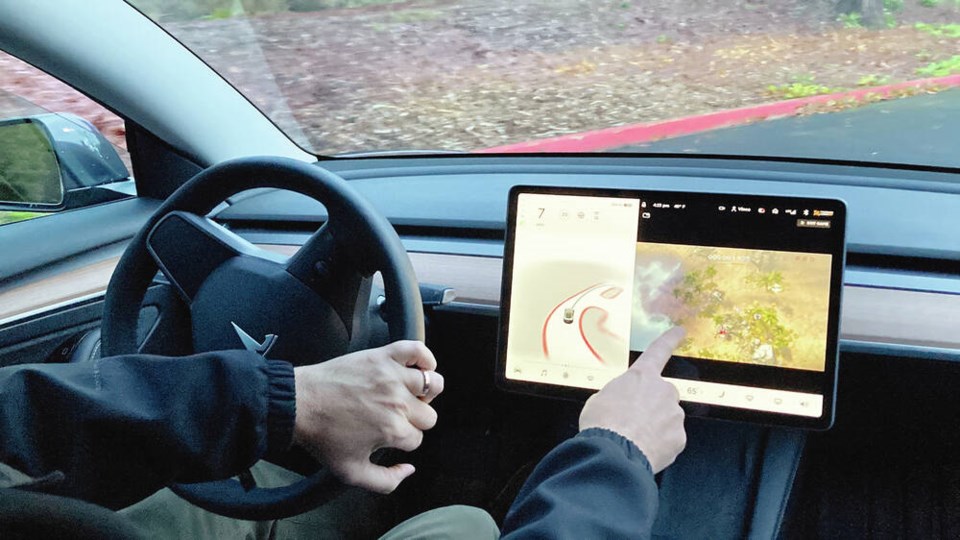Years ago I attended a symposium on automotive safety where an industry watcher reminded the audience that General Motors was not in the business of making vehicles, they were in the business of making money. Of course that applies to all the big automakers, but I recalled this talk recently and wondered how much of those extra “features” they offer make for better safety.
It’s pretty much impossible to buy a car at the advertised price because base pricing is only the start of the journey. Upselling features is a huge part of how car corporations make their dough.
Here’s my view on vehicle options, past and present, which were booms or busts.
Good: Fitted floor mats. Mats that are designed to fit exactly to your car’s floor plan are worth it — especially if they clip into place. Ill-fitting matts catch your feet, move into odd angles and at worst interfere with brake and gas pedal operation. Toyota once faced a huge recall scenario because of improper floor mats.
Bad: Social media screens. They are all the rage now but they’re dangerous. Forbes magazine reported that 324,652 people in the U.S. were injured via distracted driving in 2020. Not all of that was caused by a screen in a car, but having the world of social media at your fingertips while negotiating the Malahat doesn’t seem like a great idea to me.
Good: Side window deflectors. They’re those plastic gutter-like attachments that go round the top of driver and passenger windows. They keep the rain out while allowing you to crack the window for extra ventilation. They also allow you to hear outside better because the window can be opened slightly.
Bad: Head’s up displays. It’s one thing to be distracted by a smartphone or even an upset child. It’s something else to have a noisy visual display interfering with your vision, especially right at the road in front of you. Great in an F-35 fighter — not so much for the family SUV.
Good: Heated seats. At first I saw them as a gimmick but I’ve changed my mind. Getting comfortable early and avoiding the distraction of fiddling with heat controls while driving makes the journey safer. I draw the line though at manufacturers who, at least for a while, required an extra “subscription fee” to make them work. That’s a cash-grab rip-off — period.
Bad: Movable headlights. Designed to shift in the direction of a curve, these headlights swivel within their mounts in order to light up the roadway better as you make the turn. I drove a top end Lexus for work awhile back which had this feature. I never noticed any significant benefit to them and later found out they cost $650 each (parts only) to replace - and that was 5 years ago. Slow down a little more on curves and save your money.
Good: Rear view camera. I was skeptical at first, but this doodad eventually won me over. Mirrors and shoulder checking can only take you so far because they can’t show things directly behind you. The camera solves that problem. You should always try to back into a parking space but when you can’t, that rear view camera often gives a wide enough view to back out safely. I believe they will be mandatory for all new vehicles soon, if they aren’t already.
Bad: Automatic seatbelts. They no longer exist, thank God, because whoever thought they were a good idea should have been let go. The shoulder strap part of the belt ran along a rail atop the side window and would slide into place automatically as the accessory mode was turned on with your key. Problem was the lap portion of the belt still had to be clicked on separately. Improper use of these contraptions actually led to more deaths and injuries in the late 1980s and early ‘90s. Airbags eventually sealed their fate forever.
Good: Electronic Traction Control. A mandatory feature since 2012, it’s one of the industry’s better ideas. A computer measures the “spin” or acceleration of each of your wheels. Your traction control light will activate if a tire spins too fast. The system will then kick in and automatically slow your speed. This helps your car keep traction. It can be turned off, so is optional in that respect, but it’s more than helpful in poor road conditions.
Bad: Centre console seats. There’s often an extra seat available between driver and passenger created by flipping the centre console back. But who are we kidding? It’s a tiny cramped space and the seatbelts are often jammed away and unreachable. It cramps everyone and can interfere with driver movement. Forget them and keep the console down — it’s better as a rest for elbows.



